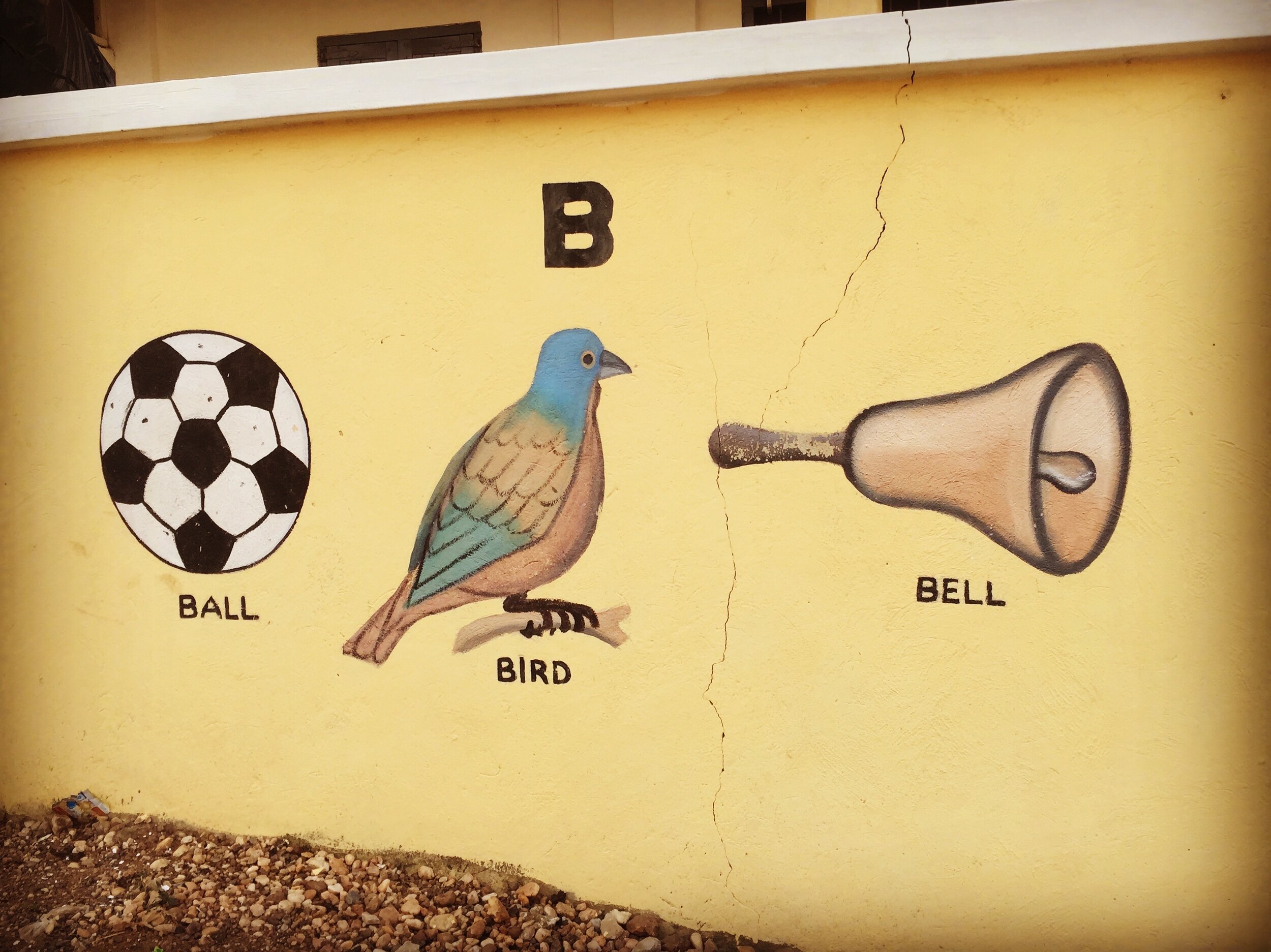
teaching
I love to teach! In addition to teaching positions at the University of Arizona, Rutgers University and Colorado State, I have taught in elementary, middle and high school settings in South Korea, México and Oregon. Inclusion, social justice, student-led learning and creativity are at the heart of my pedagogical approach, and I have received mentoring and teaching awards from the University of Arizona and Colorado State University.
Many collective members started off as students in my courses — so if you’ve taken a course with me, and you’re interested in research, check-in via email to see if there are current opportunities.
Please see my policy on letters of recommendation.
Selected courses descriptions:
Introduction to Geography (GR100): We transform spaces near and far to us, just as these same spaces – forests, city streets, homes, e-waste dumps – shape us and our relations. Geography is the study of how humans, nonhuman species and physical phenomena interact to shape and transform space. This course, Introduction to Geography, presents an overview of the geographic processes that shape our world. The course will be divided into three parts: 1) physical geography; 2) nature-society dynamics (including food systems and environmental justice); and 3) cultural geography. We will cover various topics of geographic interest, ranging from spatial distribution of landforms and environmental justice impacts of smart phones to relationships between recreational drug use and agriculture. Students will gain general knowledge of geography’s breadth, and the interconnectedness of human and biophysical phenomena.
Geography of Global Health (GR305): Bill Gates, a billionaire software developer with no medical training, organizes the annual Global Malaria Forum and pledges to eradicate the disease. Second-year American medical students spend rotations in Bangladesh, assisting with surgeries despite limited training. And drones drop HIV test kits in remote Malawian communities. These are a few examples of contemporary Global Health practices. But how do such interventions develop, and under what conditions are they different from previous international flows of medical knowledge and resources? What are the unintended consequences of Global Health practices? What accounts for health disparities in the first place, and what forms of healing flourish beyond the reach of Global Health? These are some of the questions posed by this course, which we interrogate using both theory and case studies, from the US and abroad.
Space, Place & Adaptation (ANTH617): The aim of this seminar is to critically evaluate the nexus between space, society and environment. We begin the semester engaging key readings on the ontology and epistemology of space and place, and consider questions central to their study – namely, what are these things, and how should we make sense of them? More specifically, under what conditions is space produced, experienced, politicized and transformed? After establishing conceptual foundations, we will interrogate the politics of space at different scales and read scholarship making sense of spatial dilemmas. Having covered analytics and case studies, we’ll finish the semester by critically examining “the field” and research ethics.
Courses taught at Colorado State
Introduction to Geography (GR100)
Geography of Global Health (GR305)
Development Geographies (GR418)
Gender, Culture & Medicine (ANTH416)
Anthropology of Global Health & Justice (ANTH571)
Space, Place & Adaptation (ANTH617)
Previous courses:
Rutgers University, Department of Human Ecology
Agrarian Landscapes (EPIB429)
Health & Society (EPIB141)
Nature-Society Theory (interdisciplinary graduate seminar) (EPIB501)
Theories & Reasoning (EPIB110)
University of Arizona, School of Geography and Development
Introduction to Physical Geography (NATS101)
Environmental Field Methods (GEOG303)
Geography and Gender (GEOG372)
Geography of Middle America (GEOG411)
Geography of South America (GEOG412)
University of Arizona, Center for Latin American Studies
Modern Latin America (co-instructed with Dr. Margaret Wilder and Dr. Liz Oglesby) (INDV102)
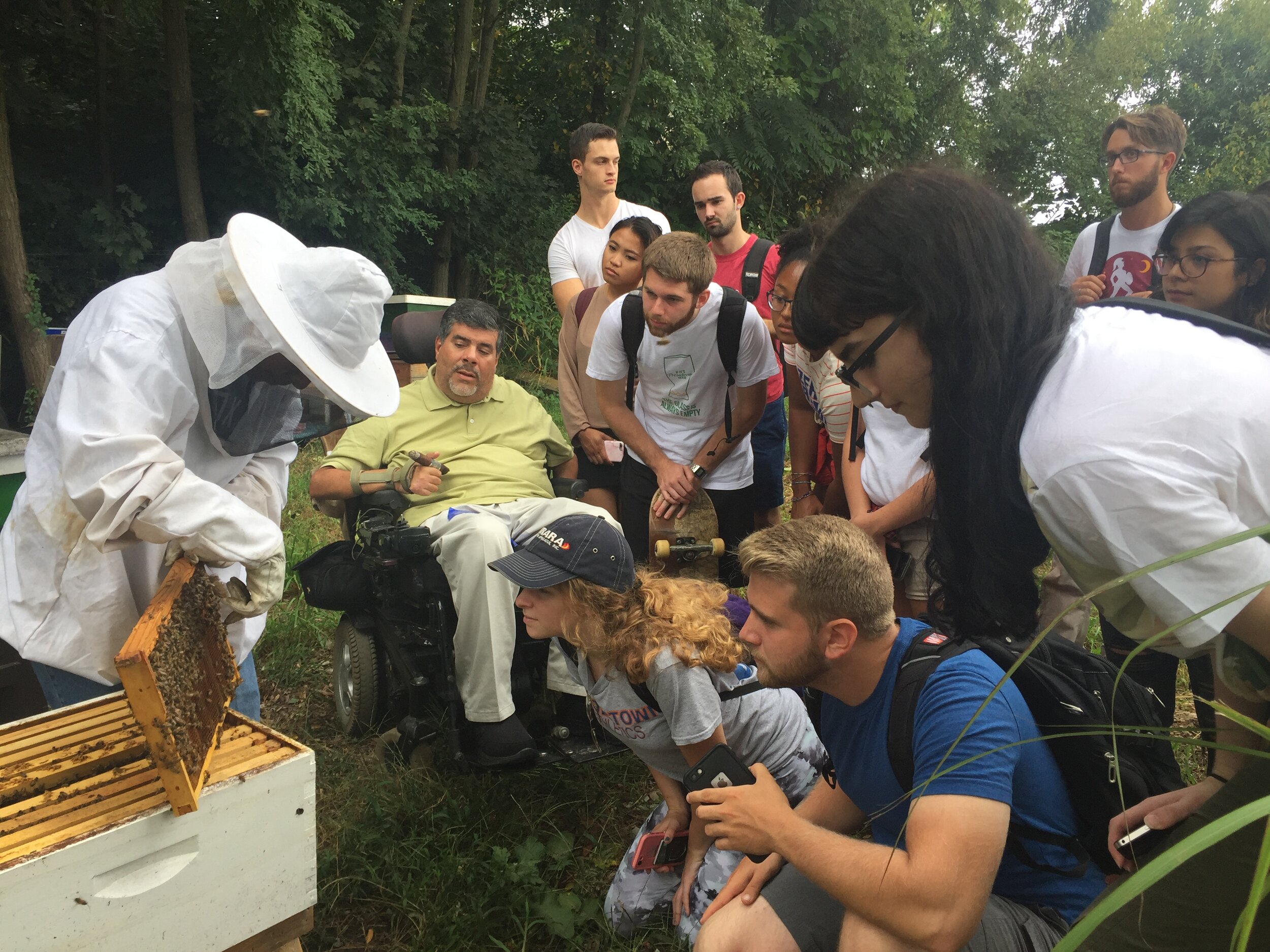
Lesson in NJ bee keeping.
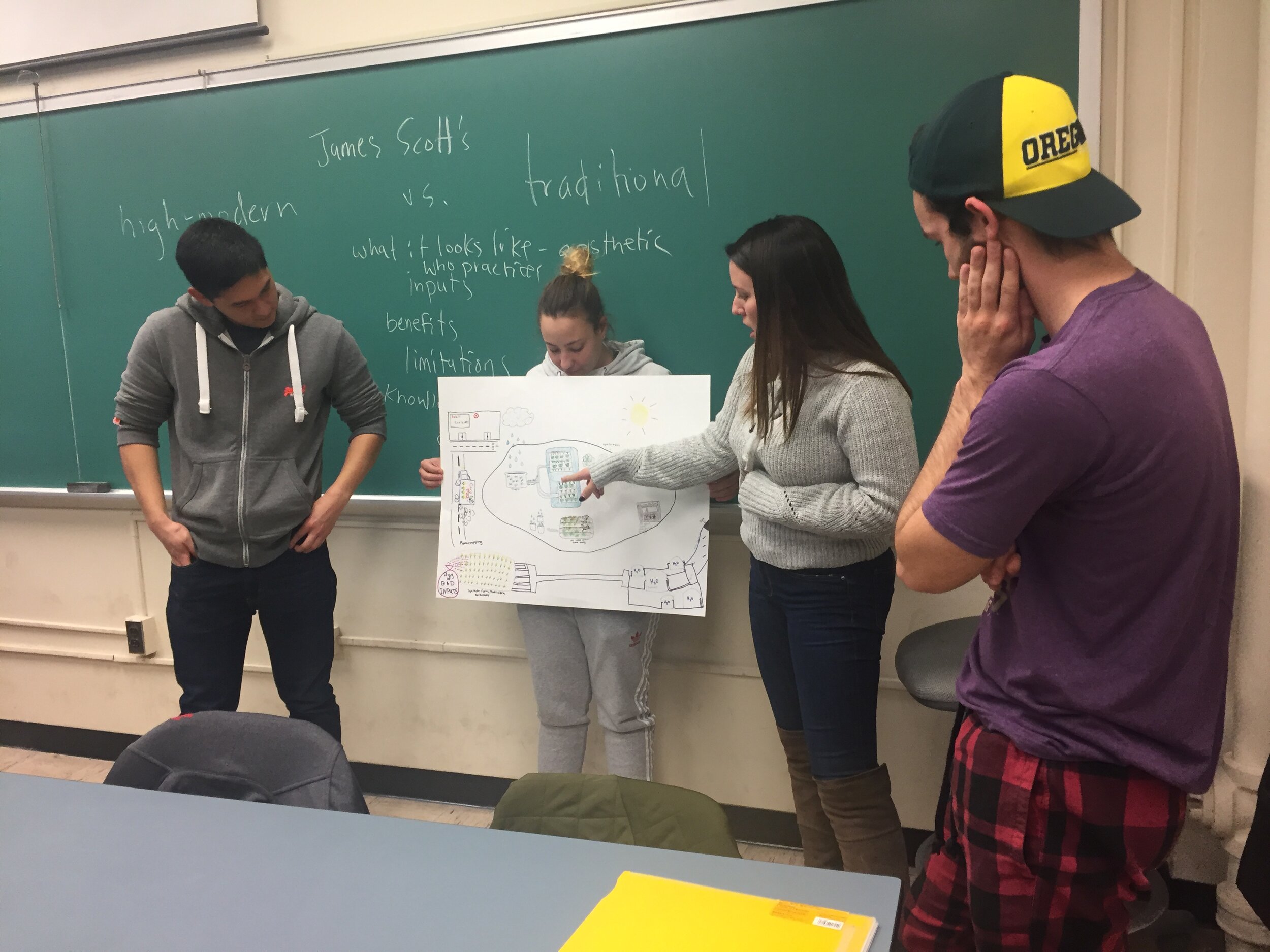
Students present drawings of high-modern/traditional binary.

A visit to an urban garden for Agrarian Landscapes.
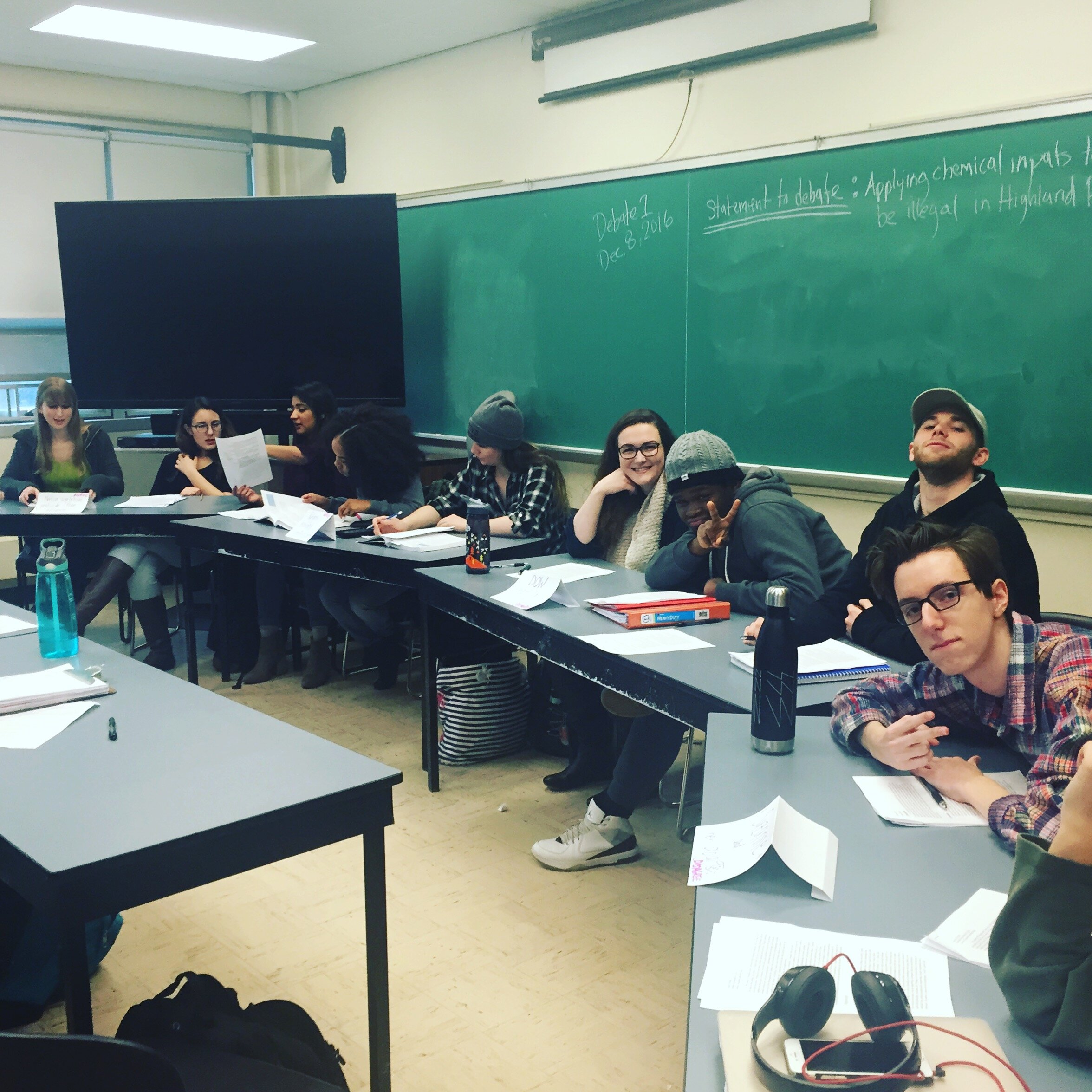
Students prepare for classroom debates at Rutgers University.

University of Arizona students and members of the Just Coffee cooperative in Agua Prieta, México.
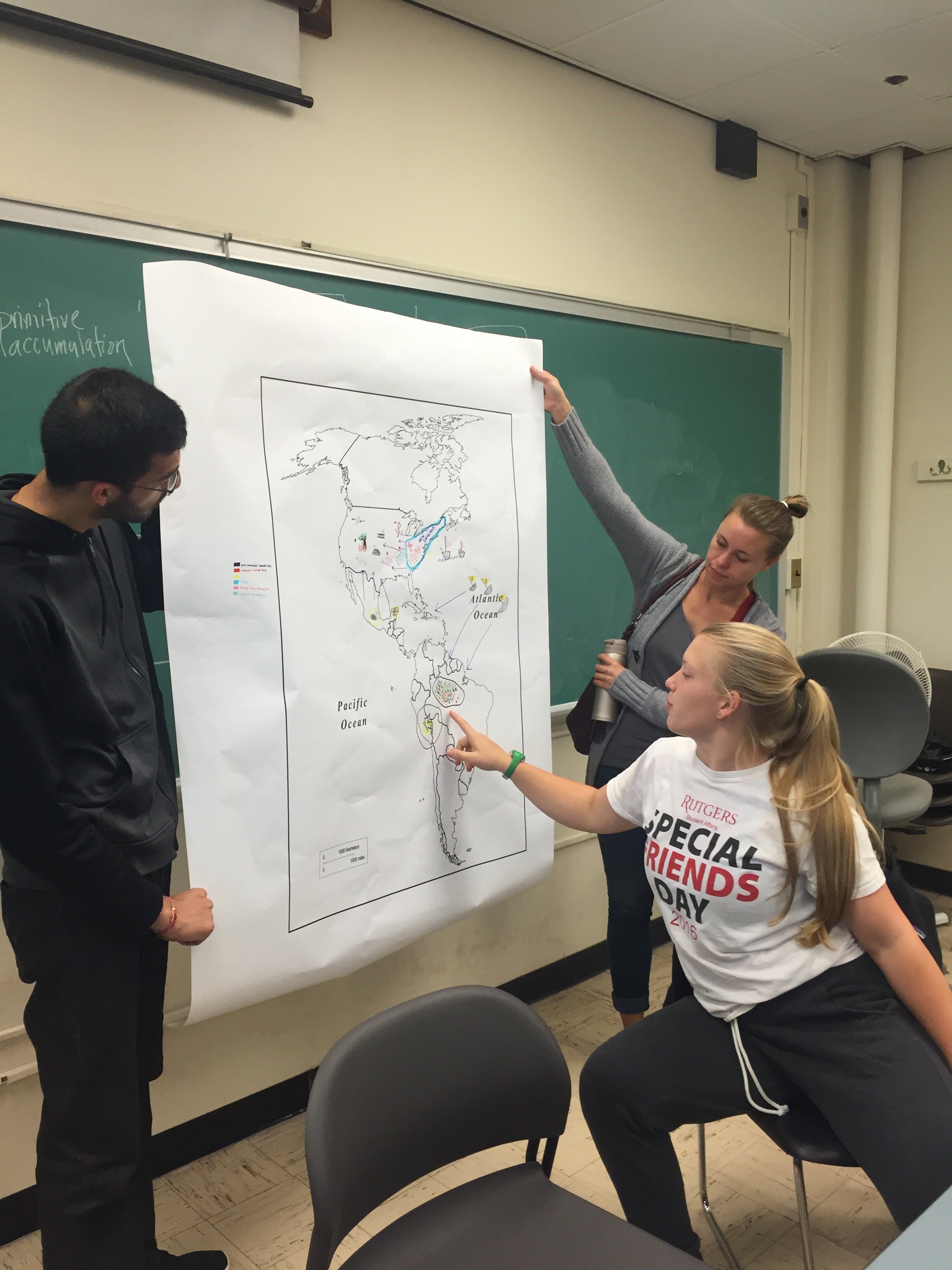
Presentation of maps illustrating North American land-uses in 1491.